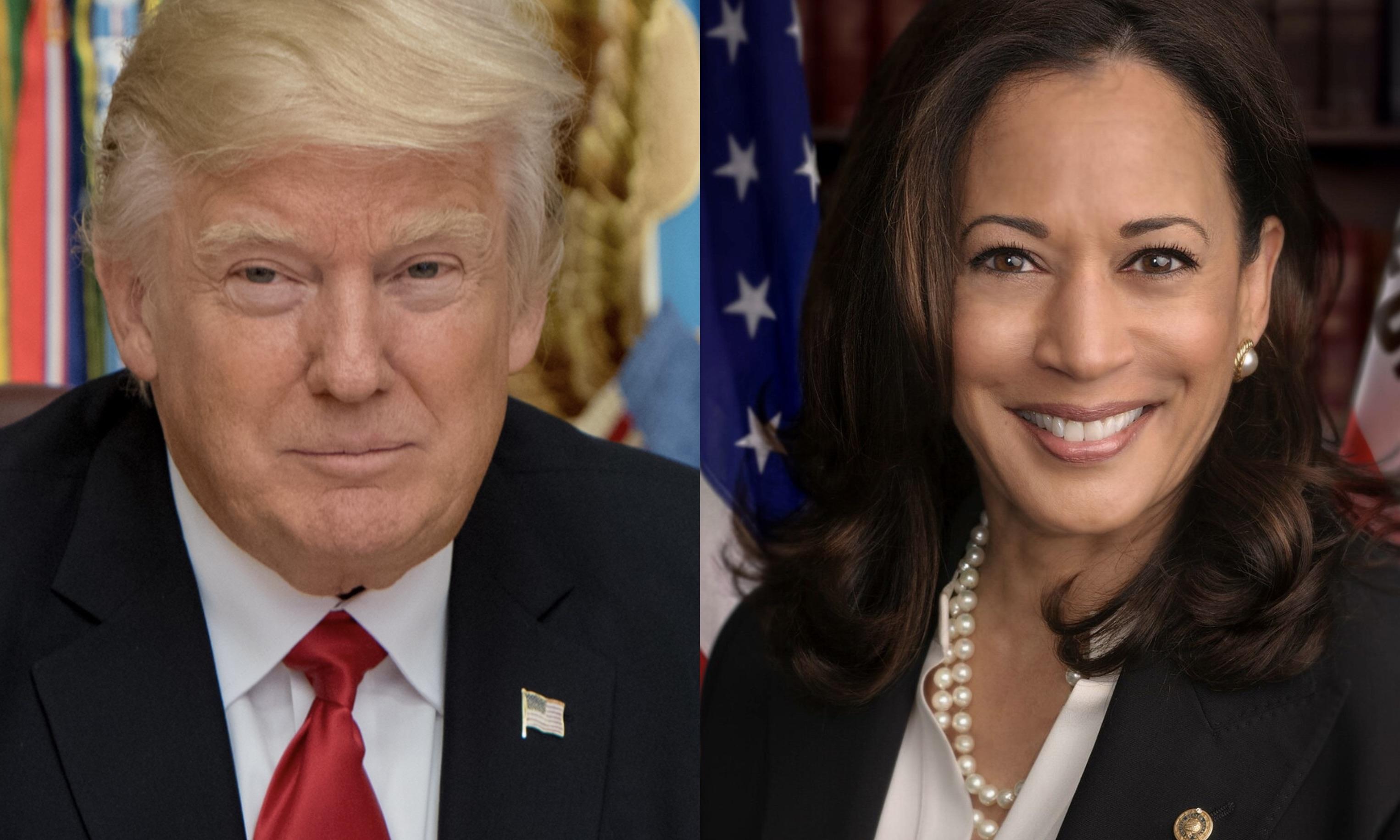As the 2024 presidential race inches closer, attention is turning to the policy platforms of leading candidates, Donald Trump and Kamala Harris. With Trump seeking to reclaim the White House and Harris potentially stepping up as the Democratic nominee following rumors of President Joe Biden's exit, the two are positioning themselves as starkly different candidates on economic and foreign policy fronts.
Trump's economic vision centers on the "America First" agenda that defined his time in office, which emphasized deregulation, tax cuts, and a push for domestic manufacturing. His economic policy appeals to working-class voters who benefited from his tax overhaul and his administration’s efforts to renegotiate trade deals. Trump has long touted his ability to stimulate job growth and support American industries, framing his policies as a remedy for what he perceives as unfair trade practices and outsourcing. Central to his economic policy has been reducing government intervention and providing incentives for corporations to remain in or return to the United States.
Harris, on the other hand, supports a more progressive economic agenda that aligns with the Biden administration's focus on infrastructure investment, healthcare reform, and expanded social safety nets. As vice president, Harris has advocated for government intervention in key areas, including efforts to address income inequality and ensure affordable access to housing and healthcare. A staunch proponent of raising the minimum wage, Harris is focused on addressing systemic disparities that affect marginalized communities and promoting policies that benefit the middle class.
On foreign policy, the candidates also present divergent approaches. Trump’s presidency was marked by an emphasis on "peace through strength," withdrawing from multilateral agreements such as the Iran nuclear deal and the Paris Climate Accord, while engaging in high-profile negotiations with North Korea. His administration's foreign policy was centered on renegotiating international trade deals, particularly with China, in an effort to prioritize U.S. economic interests. Trump's hardline stance on immigration and defense spending also defined his foreign policy platform.
Harris’s foreign policy aligns more closely with traditional Democratic stances, emphasizing diplomacy, rebuilding international alliances, and tackling global challenges like climate change. As a strong advocate for re-entering the Paris Climate Agreement and reviving nuclear negotiations with Iran, Harris champions multilateralism and cooperative global leadership. Her policy approach is rooted in restoring U.S. credibility on the world stage and addressing global inequalities exacerbated by the COVID-19 pandemic.
While Trump’s policies aim to recalibrate U.S. relationships with a focus on America’s economic interests, Harris advocates for a balance between domestic welfare and active global engagement. Both candidates, however, will need to articulate how their policies will address pressing challenges such as inflation, immigration reform, and the U.S.'s evolving role in a multipolar world.
As the race heats up, voters will likely be weighing these key differences, particularly as economic recovery and foreign relations remain top priorities. Trump's supporters argue that his hard-nosed tactics delivered results for American workers and boosted the economy, while Harris's backers believe her policies will offer a more inclusive path forward, both domestically and internationally.



 Santander’s $12.2B Webster Financial Deal Faces Uncertainty Amid U.S.–Spain Trade Tensions
Santander’s $12.2B Webster Financial Deal Faces Uncertainty Amid U.S.–Spain Trade Tensions  Pentagon Downplays ‘Endless War’ Fears After U.S. Strikes on Iran Escalate Conflict
Pentagon Downplays ‘Endless War’ Fears After U.S. Strikes on Iran Escalate Conflict  U.S. Middle East Strikes Raise Indo-Pacific Security Concerns for Japan, South Korea, and Taiwan
U.S. Middle East Strikes Raise Indo-Pacific Security Concerns for Japan, South Korea, and Taiwan  Israel-Hezbollah Escalation Deepens Lebanon’s Role in Middle East Conflict
Israel-Hezbollah Escalation Deepens Lebanon’s Role in Middle East Conflict  Trump Offers U.S. Insurance and Naval Escort for Tankers as Strait of Hormuz Crisis Disrupts Global Oil Trade
Trump Offers U.S. Insurance and Naval Escort for Tankers as Strait of Hormuz Crisis Disrupts Global Oil Trade  Why did Iran bomb Dubai? A Middle East expert explains the regional alliances at play
Why did Iran bomb Dubai? A Middle East expert explains the regional alliances at play  Suspected Iranian Drone Hits CIA Station at U.S. Embassy in Riyadh Amid Rising Middle East Tensions
Suspected Iranian Drone Hits CIA Station at U.S. Embassy in Riyadh Amid Rising Middle East Tensions  European Allies Deploy Air Defenses to Cyprus After Drone Attack on RAF Akrotiri Base
European Allies Deploy Air Defenses to Cyprus After Drone Attack on RAF Akrotiri Base  Defense Contractors Move to Drop Anthropic AI After Trump Administration Ban
Defense Contractors Move to Drop Anthropic AI After Trump Administration Ban  U.S. Officials Review Tencent’s Stakes in Epic Games, Riot Games Over Security Concerns
U.S. Officials Review Tencent’s Stakes in Epic Games, Riot Games Over Security Concerns  Middle East Air War Triggers Massive Flight Cancellations and Global Airline Disruptions
Middle East Air War Triggers Massive Flight Cancellations and Global Airline Disruptions  U.S. Interior Department Responds to Leak of Trump Administration Plans to Revise National Park History
U.S. Interior Department Responds to Leak of Trump Administration Plans to Revise National Park History  Melania Trump Chairs Historic U.N. Security Council Meeting on Children Amid Iran Conflict
Melania Trump Chairs Historic U.N. Security Council Meeting on Children Amid Iran Conflict  Does international law still matter? The strike on the girls’ school in Iran shows why we need it
Does international law still matter? The strike on the girls’ school in Iran shows why we need it  Trump Defends Extended U.S.-Israel Military Campaign Against Iran
Trump Defends Extended U.S.-Israel Military Campaign Against Iran  Michael Whatley Wins North Carolina GOP Senate Primary, Setting Up High-Stakes Battle With Roy Cooper
Michael Whatley Wins North Carolina GOP Senate Primary, Setting Up High-Stakes Battle With Roy Cooper  AI is already creeping into election campaigns. NZ’s rules aren’t ready
AI is already creeping into election campaigns. NZ’s rules aren’t ready 































